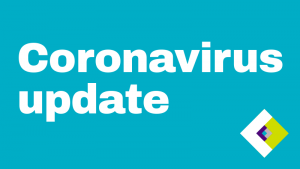Corona Virus Update
Please, find below details and links to important information in regards to the ungoing Coronavirus Pandemic.

LOCSU guidance

AOP guidance

College of Optometrists guidance

ABDO guidance
Updated OFNC Guidance on Changes to Primary Eye Care in England
9 April 2020
As set out in our statement of 1 April, this document addresses the main questions raised by our members so far about the NHS England optical letter of 1 April 2020. It is based on our understanding of the information NHS England has shared to date. We will update this guidance as the situation develops, and as we receive more information from NHS England and queries from the members of the OFNC bodies.
This version of the FAQs was updated on 9 April 2020. New questions are marked ‘[NEW]’ for ease of reference.
PROVISION OF SERVICES
All routine care is suspended – am I required to close my practice?
No, you do not have to close.
You should not offer routine sight-testing and dispensing (to avoid all unnecessary travel and person-to-person contact) but you may stay open so that your clinical team can provide:
- essential eye care as defined in the NHS England letter, and/or
- urgent / emergency care.
This includes providing remote care and dispensing, and meeting the needs of those patients not entitled to GOS, in line with the College of Optometrists’ guidance on providing care during the crisis and the GOC’s guidance on the provision of spectacles and contact lenses.
Do I need someone to be physically present in my practice throughout my normal opening hours to qualify as ‘open’ and receive NHS England financial support? [NEW]
No, you do not need to be physically present in the practice. Government advice is that all unnecessary travel should be avoided and person to person interaction (even if social distancing) minimised to help reduce risk for patients, staff and the wide public. ‘Open’ in these circumstances means providing essential eye care in accordance with College of Optometrists and government Covid-19 guidance. These services could be provided from home locations wherever possible.
The key to being ‘open’ is that patients must be able to contact the practice during normal opening hours, but this can be by phone or email – for instance you could divert your practice landline to an alternative number, or provide an answerphone message asking patients to contact a mobile phone or to send you an email. Calls and emails should be managed promptly and efficiently in line with the importance of providing an essential service.
Please see FAQ 3 below for more on meeting patients’ needs during the crisis. Direct input from practitioners may require scheduling in order to accommodate demand and practitioner availability. Appropriate clinicians should be available to deliver face to face services promptly where necessary, subject to confirming the patient and other household members have no COVID-19 symptoms, and following College of Optometrists guidance including on the use of PPE.
How should I meet my patients’ changing needs during the crisis? [NEW]
NHSE has advised that where possible remote consultations (via phone or video) should be available to prevent the need for patients to attend the practice in person. The College of Optometrists guidanceon providing care during the crisis advises that you should operate a locked-door policy and admit patients for pre-booked appointments only. The College has published guidance on conducting remote consultations.
If practice attendance is required, you should double-check whether the patient or any household member has symptoms of COVID 19. If they have, the patient should be treated via alterative local pathways as appropriate.
When required, practices should try to meet patient needs for face to face consultation, and only refer to another local service by agreement if unable to offer onsite support.
Practices may need to exercise flexibility around opening hours in response to patient demand, staff availability, self-isolating, infection control and PPE availability during the course of the current crisis, especially those practices that might otherwise operate extended hours. Contractors should aim to maintain up to date details on their practice websites, and to keep their local area team informed of any temporary changes.
You do of course also have the option of changing your standard NHS contractual opening hours via the formal contract variation process. However, this is unlikely to be necessary throughout the crisis unless you plan to do so permanently.
If a contractor chooses to cease operations entirely, they should notify their regional commissioner, and support payments will stop for this period.
Will I be forced to open?
NHS England has no plans either to force practices to close or to remain open. The aim is to direct all patients who need essential, urgent or emergency NHS eye care to optical practices during the crisis, to meet their care needs and keep pressure off other parts of the NHS. If undersupply occurs, NHS England or CCGs may work through LOCs to ask practices to volunteer to reopen if they can. In most cases, we expect practices will continue to offer essential eye care and support their own patients.
Why does the NHS England letter talk about delivering services from only a limited number of practices?
Depending on the progress of the COVID-19 crisis, NHS England regional teams may need to work with optical practices, LOCs, and CCGs to ensure that practice opening arrangements continue to protect public health and ensure appropriate and adequate levels of care – particularly urgent and emergency care. The OFNC will monitor this closely and provide further advice if necessary.
Do I need permission to continue to provide essential care?
No, you do not need to get permission to stay open or to inform your NHS England regional team.
If I provide essential NHS care, do I also need to provide urgent or emergency care?
You only need to provide urgent or emergency NHS care if you have a contract to do so.
I don’t currently provide urgent or emergency care under a MECS or similar contract, how can I start doing that?
The OFNC, LOCSU and others are working with NHS England to put in place local urgent and emergency care services where these do not already exist. LOCSU will work with all LOCs to communicate these arrangements as soon as possible.
What happens if I’ve already completely closed my practice, or want to close it now or in future?
If your practice is completely closed and you are not providing any essential care (e.g. remotely), you will not receive GOS support payments for the duration of the closure. You will be able to claim any general Government business support for which you are eligible, such as business grants and payments under the Coronavirus Job Retention Scheme and the Self-Employment Income Support Scheme.
DOMICILIARY SERVICES
I have a domiciliary practice, how does the letter apply to me?
In the same way as any other practice as above. People who cannot leave home unaided will need essential and urgent eye care during the crisis the same way as everyone else.
What if a non-COVID positive patient in a care home needs essential or urgent care, but their care home is locked down or they are being sheltered or self-isolating?
Remote care (including symptom relief) should be provided. This may involve advising and working with and through other clinicians (e.g. nurses, visiting GPs), trained care workers or carers who are admitted into the home. In the case of lost or broken glasses, consider using any available evidence such as broken glasses, old prescriptions and previous records to enable emergency replacements to be supplied.
SUPPORT FOR PRACTICES THAT REMAIN OPEN
I wish to continue to provide essential services – what payment will I receive?
If you continue to provide essential care in line with official public health advice and College of Optometrists guidance, you will receive a monthly payment based on your average monthly GOS claims for the period from March 2019 to February 2020. This will include voucher claims. Where your actual GOS claims during the crisis exceed this level, you will be paid the additional claims in the usual way.
This is a grant payment, not a loan. It will be subject to a reduction for variable costs associated with service delivery, which will be agreed with the OFNC. We will provide more information about this process as soon as we can.
My practice has been open less than a year, how will average fees be calculated?
NHS England has said average fees will be calculated on a fair and reasonable basis taking into account your average monthly GOS claims during the period your practice has been open.
When will I know how much will be deducted for variable costs?
The OFNC will agree this with NHS England. We will provide further information as soon as we can.
How do I apply for the new NHS England financial support? [NEW – updated 9 April]
You do not need to apply for the support. If your NHS England area team knows you are open, it will write to you shortly after 17 April with the calculated value of your monthly payment. You will then be automatically paid this amount by PCSE in line with your normal payment schedule. Your area team will have your GOS claims payment history and will be able to deal with any queries about the value of the payment.
The first support payment will cover March 2020, and will top up any GOS claims you submitted for March to the value of your average monthly claims. You will then receive the same payment each month until further notice. During this period, PCSE have requested that contractors continue to submit GOS claims as normal. This will not affect the value of the monthly payments, except in the unlikely event that your claims exceed the value of the monthly payment.
How do I ensure that claims for additional Government support schemes only relate to my proportion of private revenue?
NHS England wants to ensure that where it continues to pay contractors to provide essential care during the crisis, those contractors do not also receive a separate contribution from general Government financial support which directly covers the cost of providing essential GOS – in other words, they do not want the Government to pay twice for the same thing.
If you receive general Government support while providing essential care under these arrangements, which will likely be the situation for most practice owners, you should keep records to show that the general support is not being used to fund the costs of providing essential care, which will be separately funded through GOS. Other FAQs in this section set out the OFNC’s understanding of how the NHS England support relates to different forms of general Government support.
Can I provide essential care and claim NHS England support while furloughing staff? [NEW]
You can furlough any staff on PAYE who are not involved in providing essential care. Staff who are involved in providing care – even on a voluntary or part-time basis – cannot be furloughed under the rules of the Coronavirus Job Retention Scheme.
Can I provide essential care and claim NHSE support while also claiming a business grant? [NEW]
Business grants are linked to premises and applied automatically, so this grant does not have to be claimed. Business grants are provided because of the general impact of the crisis on qualifying businesses and are not linked to NHS care.
NHS funding is for essential eye care and to ensure the primary eye care infrastructure is maintained after the crisis period. NHS England has said it intends to run a reconciliation process to check practices have only received an appropriate level of support during the crisis, and that it will work with the OFNC to agree a proportionate and workable process.
Given how the vast majority of optical practices operate, it is clear that any business rates relief and/or grants will be support for the impact of the crisis on their general business activities and not clinical care, in the same way as for other businesses receiving the support. In the OFNC’s view there will therefore be no overlap between the NHS support and the general business grant support, except in the unlikely event that your income during the crisis, from NHS support and business grants combined, is greater than it would have been under normal circumstances.
Can I provide essential care and claim NHSE support while also claiming self-employment support? [NEW]
The general government income support scheme for the self-employed is new and complex, and the rules are still evolving, so the OFNC cannot yet give firm guidance on this question. The sector representative bodies will provide further guidance as the rules are clarified.
In principle we think self-employed practice owners who are providing essential care and receiving NHS England financial support may also be able to claim for support under the self-employed scheme, provided that (i) they meet all the eligibility criteria for the scheme, and (ii) they can show they have suffered ‘lost profits’ relating to private sales and services, including non-voucher dispensing, private sight tests and contact lens appointments, and any other sources of income that are not from GOS.
Anyone claiming self-employed support in these circumstances should satisfy themselves that they can show the support has not been used to cover the costs of providing essential care, and may wish to seek accountancy advice.
PRACTICAL ISSUES
Do I still need to get the patient to sign GOS forms before I submit them? [NEW]
For GOS 1, we recommend that where you provide a consultation (and where necessary, a dispense) but don’t perform a sight test, you should not submit a GOS 1 claim but should maintain records and make a note of the activity. If you do perform a sight test, you should submit a signed GOS 1 claim in the usual way, using social distancing and hygiene procedures.
For GOS 3 and 4 claims, NHS England has advised the OFNC that during the crisis claims can be submitted without a patient signature provided the form is annotated ‘COVID-19’.
For guidance on the other practical issues raised by the NHS England letter, including:
- How do I provide remote consultations?
- How do I provide emergency dispensing and supply?
- Where can I find out more about infection control to maintain my practice environment?
- Where do I find the latest information and recommendations on Personal Protective Equipment (PPE)?
- How can I obtain PPE?
Please see the COVID-19 guidance of the College of Optometrists and the General Optical Council.
FURTHER QUESTIONS
Contractors and practitioners should direct further questions to their representative bodies, using the email addresses below, so that the bodies can consolidate queries to inform more detailed guidance and FAQ resources as required:
ABDO general@abdo.org.uk
FODO info@fodo.com
LOCs can also raise LOC matters via LOCSU by emailing info@locsu.co.uk where they will be fed into the central process.
The Optometric Fees Negotiating Committee
The Optical Fees Negotiating Committee (OFNC) is the national negotiating body for eye care in the UK and England with the Westminster Parliament, the Department of Health and Social Care, and NHS England-NHS Improvement. It comprises the leaders of the UK representative bodies: ABDO, AOP, FODO and BMA (for OMPs) and works in partnerships with the College of Optometrists and the General Optical Council.
Latest news
-
LOCSU announce 4-month pause in levy payments
3 April 2020
Archives by Month:
- April 2020 (3)
- March 2020 (9)
- February 2020 (5)
- January 2020 (5)
- December 2019 (1)
- November 2019 (5)
- October 2019 (5)
- September 2019 (3)
- August 2019 (5)
- July 2019 (5)
- June 2019 (4)
- April 2019 (1)
- March 2019 (2)
- January 2019 (3)
- December 2018 (1)
- November 2018 (1)
- October 2018 (1)
|
|
|
|
Novel coronavirus (COVID-19) standard operating procedure
Primary care optical settings
http://www.primaryeyecare.co.uk/covid-19-guidance.html<https://primaryeyecare.us4.list-manage.com/track/click?u=9f54a2d22e467e559c9cffe98&id=838548db4a&e=c9a9788a82>
If you have any queries regarding guidance or related to the locally commissioned service please contact your local clinical governance and performance lead or email us on info@primaryeyecare.co.uk<mailto:info@primaryeyecare.co.uk>.

COVID-19: OFNC Announcement on Support for GOS Contractors in England
20 March 2020
The Optometric Fees Negotiating Committee (OFNC) and its members (ABDO, AOP, BMA and FODO) are working closely with NHS England on supporting GOS contractors in England through the coronavirus crisis.
NHS England has confirmed that eye care is an essential part of the NHS and primary care service, both of itself and in keeping pressure off other NHS services such as GPs and A&E. NHS England’s aim is to keep essential eye care operating as far as possible to ensure essential and urgent eye health needs are met whist protecting patients, staff and the public.
Issues that the OFNC and NHS England are urgently working on with the aim of supporting optical practices in England, include:
- The financial implications for practices of a downturn in GOS fee income because of the crisis
- More flexibility around GOS contractual requirements, to help practices and domiciliary providers give patients the care they need as quickly and safely as possible, and to support practices who may not have the staff available to provide services, due to illness or self-isolation
- Guidance to help patients, optical practices and other parts of the NHS understand the GOS services that optical practices in England will continue to provide during the crisis and to direct patients to them
- How the whole sector can work together to mobilise new services in optical practices as quickly as possible, to meet essential and urgent eye care needs during the crisis and reduce demand on GP and hospital services.
OFNC and its member bodies are working very closely with LOCSU, which is co-ordinating the sector-wide work on new services, and with the General Optical Council, College of Optometrists, Optometry Wales, Optometry Scotland and Optometry Northern Ireland and government to streamline communications and provide evidence-based advice to the front-line throughout this crisis.
We and the NHS in all countries thank you for your support to the population at this difficult time. We will share more information about these measures as soon as we can.
|
|

At LOCSU we are aware that there has been a range of information in circulation relating to Coronavirus and potential risks and processes for dealing with patients who may have been exposed to the virus.
It is important that all LOCs work within consistent and verified advice as such LOCSU would direct all LOCs to:
- General Coronavirus advice for clinicians: https://www.england.nhs.uk/coronavirus/
- The AOP have constructed a page drawing together advice and support for dealing with Coronavirus: https://www.aop.org.uk/advice-and-support/clinical/clinical-governance/novel-coronavirus-covid-19-advice
In addition, further advice can be found on government and NHS websites:
- UK government: https://www.gov.uk/government/topical-events/coronavirus-covid-19-uk-government-response
- Public Health England: https://www.gov.uk/government/collections/coronavirus-covid-19-list-of-guidance
And:
- Novel coronavirus: guidance for health professionals
- Novel coronavirus: guidance for primary care
- Novel coronavirus: guidance to assist professionals in advising the general public
- World Health Organisation
The sector bodies are now part of a weekly virtual call with NHS England and information from those will be circulated as necessary. For further LOC advice and guidance please contact your local Optical Lead.
Business Links
Please find below important business information:


